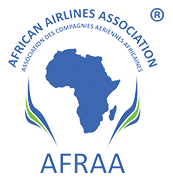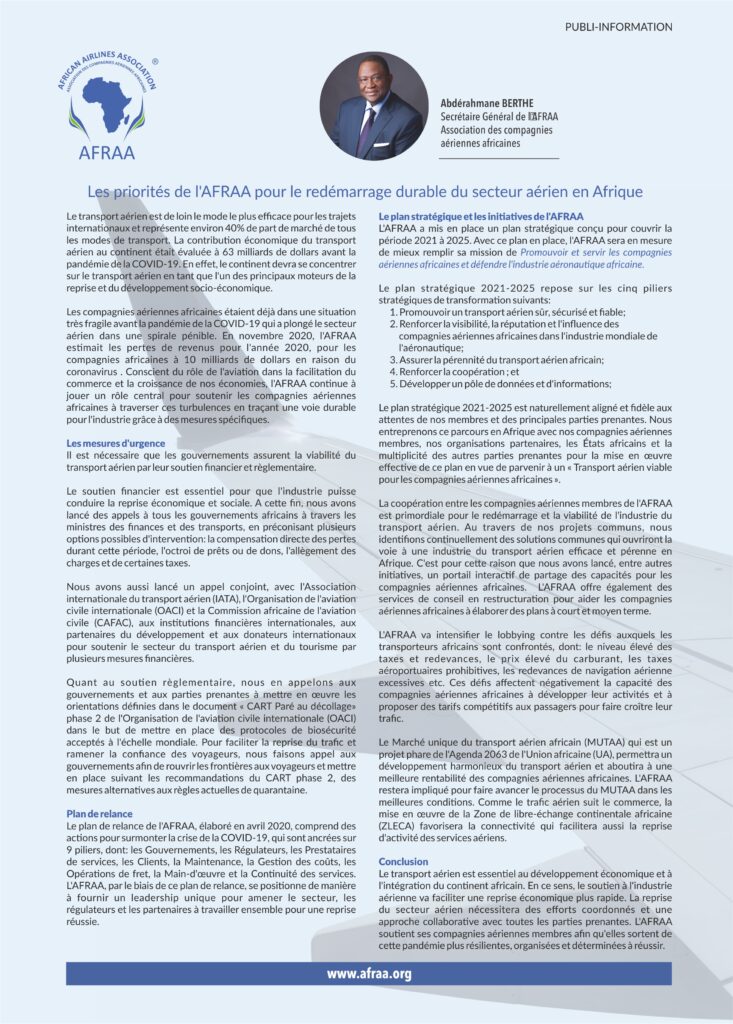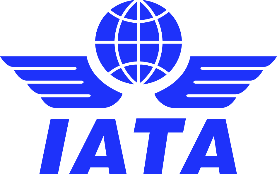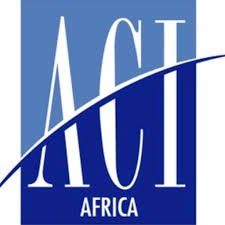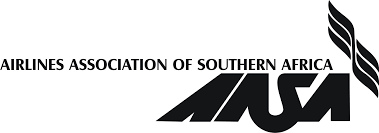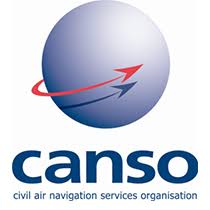African Airlines Association Secretary General Abderahamane Berthe says there are opportunities to achieve a successful restart and recovery through enhanced cooperation among African airlines.

- How has the COVID-19 pandemic affected African airlines and the greater African aviation market?
The impact of the pandemic on the airline industry is severe and unprecedented. AFRAA July 2020 analysis of the toll of the impact of COVID-19 pandemic on the airline industry reveals an estimated revenue loss of USD 8.8 billion for African airlines for the year 2020.
Passenger revenues dropped USD 0.506 billion in Q1 2020, with a higher impact in Q2 2020 of USD 2.740 billion. As African countries begin to reopen their borders and airlines commence the restart of their operations in Q3 2020, the impact assessment analysis shows that revenue levels will increase slightly from mid of Q3 2020, but very low compared to 2019.
Recovery is expected to start with domestic operations, followed by regional then intercontinental flights.
2. Profitability remains a challenge for the majority of airlines in Africa, according to AFRAA’s recent Impact Assessment Report, African airlines will collectively lose US$8.8 billion. What are you doing in revising this trend?
Currently, the industry is experiencing a liquidity crisis with airlines facing the risk of insolvency or even bankruptcy from the severe impacts of the pandemic. Airlines have had little or no revenues coming in since the onset of the crisis amid various costs. It is therefore necessary to embark on the journey to recovery as soon as possible to ensure survival and business continuity of the industry. On financial support, AFRAA has taken various initiatives to date to airlines as follows:
First, in March 2020, AFRAA made appeals to African States to consider the compensation of inevitable losses, the alleviation of exogenous operating costs, and the subsidization of African airlines.
Secondly, in May 2020, AFRAA, in collaboration with 4 international air transport and tourism bodies made an appeal to international financial institutions, country development partners and international donors to support Africa’s Travel & Tourism sector. Among other measures, the appeal called for the provision of: $10 billion in relief to support the Travel & Tourism industry and help protect the livelihoods of those it supports and access to as much grant-type financing and cash flow assistance as possible to inject liquidity and provide targeted support to severely impacted countries.
Thirdly, AFRAA in collaboration with UNECA conducted a survey to quantify the 2020/2021 indebtedness of African airlines from COVID-19 impacts which formed basis for campaigns for the much-needed financial support. Following this, AFRAA in partnership with the United Nations Economic Commission for Africa (UNECA) and the International Air Transport Association (IATA) staged a webinar on the theme: “Financial support to the African airline industry in the context of COVID-19 pandemic impacts” in June 2020.
Fourthly, AFRAA contributed to the AUC/AFCAC High Level Task Force (HLTF) which put in place a comprehensive African Aviation Recovery Plan with recommendations to African Ministries of Transport. Key among the financial recommendations is that States accord priority to the aviation sector and put in place US$25Bn fund to support sector.
In additional to the above measures for financial support to airlines, AFRAA developed a 9-pillar Recovery Plan for the rebound of the airline industry and is currently working on various projects/initiatives for value addition to its members. One such project is the AFRAA capacity sharing portal which was launched on 13 August 2020. In line with AFRAA recovery plan, the portal address actions under the pillars on cost management, cargo operations and business continuity.
The portal, which is powered by ACC Aviation Group, gives airlines a platform to share capacity and increases daily utilization of aircraft. On one hand, operators have the opportunity to make offers of their aircraft availability and check the list of offered airplanes for ACMI (Aircraft, Crew, Maintenance and Insurance), dry lease sale and layover aircraft use. On the other hand, users can place requests for: ACMI, passenger charter, cargo charter and consultancy services. As airlines redefine their business models, network and fleet, AFRAA is also availing restructuring consultancy services to assist with short and medium-term plans.
3. AFRAA recently called for the establishment of an African Airline/Aviation Relief Fund. Where are you getting the money from and how will it be accessed?
Appeals have been made to financial institutions (World Bank, African Development Bank, Afreximbank and UNECA) requesting their support to mobilize the required financial stimulus package. A follow-up committee of the AUC/AFCAC HLTF will be in place to closely follow up the implementation of the recommendations of the HLTF which cover measures related to post Covid-19 economic and financial recovery.
AFRAA will continue to seek more avenues for support to the industry from development finance institutions, country development partners and international donors for the much-needed financial support to the industry.
4. What challenges do you see in rebuilding passenger confidence during the post COVID-19 period?
As we gradually move into restarting our industry, the main challenge in rebuilding passenger confidence is lack of harmonization of biosecurity measures across different States.
The International Civil Aviation Organization (ICAO) Council Aviation Recovery Task Force (CART) ‘Take-off’ guidelines provide recommendations and measures to be applied for the resumption of air transport from COVID-19 pandemic. In order to safely re-build traveller confidence and economies, States, airports, airlines, and service providers are strongly encouraged to follow the key principles and recommendations outlined in the Report, as well as to pay particular attention to the set of recommended risk mitigation measures presented in the guidelines.
Our call as AFRAA is that African stakeholders should adopt a harmonized approach to the implementation of measures on CART’s ‘Take-off’ Guidance for a seamless and effective restart of aviation activity. Implementing harmonised measures is urgent and critical to allow the restart of flights by African Airlines as soon as possible and to bring confidence of both passengers and stakeholders. In line with this, AFRAA made appeals in June 2020 to the sub-regional economic communities to urge their Member States to put in place the required measures so that the airlines can resume their activities as quickly as possible.
5. How long do think you it will take for African aviation to recover from the COVID-19 pandemic?
With the pandemic still evolving amid increasing infection rates in Africa, a prediction of the future may not be precise. Nevertheless, industry experts are estimating that the industry will reach the 2019 traffic levels in 2023 or 2024.
6. Do you think there is a need for African airlines to consider Joint Venture (JV) post COVID-19 pandemic?
As part of the recovery from the pandemic, airlines will need to reinvent themselves and redefine their business models for sustainability. Networks will be repositioned and fleet will be resized to align with new traffic flows and evolving passenger expectations.
There is an opportunity to achieve a successful restart and recovery through enhanced cooperation among African airlines at a commercial level which will lead to higher yields, create synergies, reduce costs and increase revenues. Globally, the aviation industry has benefited from strategic partnerships and alliances that have allowed a number of airlines to seek common solutions by working in synergy. African airlines must enhance their cooperation to drive down their costs and increase revenue. AFRAA encourages cooperation in this regard.
Cooperation can be of several types: capital, commercial, technical and operational. At AFRAA we have recently launched several new initiatives aimed at raising the level of cooperation among our member airlines in different areas including capacity sharing, training, flight schedule coordination, technical and operations.
7. How can African Airlines build resilience to survive future challenges?
Emerging from the COVID-19 pandemic will not be easy, especially for African airlines, noting that they operated in a challenging environment even before the pandemic and have not made an average profit since 2010. There will be a deeper impact on the way the air transport industry will operate post-COVID-19 and the recovery will also change the way we will travel, as has been observed after major shocks in the past.
Cooperation among African airlines will be critical factor for the airline industry to rebound after COVID-19. As mentioned in the response to the question above, airlines will need to reinvent themselves and redefine their business models for sustainability.
8. African governments have often been blamed for the demise of many airlines on the continent. Do you think there is adequate political will to revive the aviation sector in the African continent?
The airline industry is high capital intensive and the return on investment is very low therefore it is not easy to get private entities to invest in airlines. In Africa, airlines are still considered as representatives of their country and sovereignty. For instance, out of 45 AFRAA airlines, 14 are 100% private-owned while the rest are either fully or partially state-owned.
Airlines operate in a highly competitive and tough environment and therefore government support is critical for their survival and sustainability. Air Transport is critical for the economic development and integration of the African continent thus support to airlines will aid in faster economic recovery. It is also important for airlines to apply and enforce best management practices for sustainable operations.
9. A number of countries have announced 01 August 2020 as the date for flights resumption. Is this being done in a harmonized manner? Would you want to see more a regional approach in reopening the skies?
Airlines are resuming operations beginning of Q3 2020. As we gradually move into restarting our industry, it is imperative that all stakeholders use a harmonized approach and a globally agreed framework of guidance and measures. Seamless Implementation of harmonised measures is crucial for the restart of flights by African Airlines as soon as possible and bring confidence of both passengers and stakeholders. To complement this, in June 2020 AFRAA made appeals to the sub-regional economic communities to urge their Member States to put in place the required measures so that the airlines can resume their activities as quickly as possible.
10. A number of measures are being put in place to ensure restart. Do you think the measures are adequate and they will promote flying ?
In terms of health and safety, the ICAO CART ‘Take-off’ guidelines in place as mentioned earlier, provide recommendations and measures to be applied for the resumption of air transport from COVID-19 pandemic.
The reopening should be done in strict adherence to CART Take-off guidelines. Implementing these measures is critical to restore confidence of both passengers and stakeholders in air travel.
11. Africa has recorded a 22,10 % YoY cargo growth due to the Covid19. Do you see sustained cargo growth for African airlines in the future?
To meet the transportation needs for the supply of PPEs, medical equipment and essential goods during the covid-19 pandemic, there was a spike in demand and shortage of cargo capacity in Africa between March and June 2020. However, the cargo volumes slowed down in July-August. The situation was unprecedented.
On average, scheduled freight operations by African airlines represent about 1.6% of total global freight carried. While air cargo faces many challenges, particularly the weak intra-African trade and competition from other modes of transport, this is expected to change with the implementation of the African Continental Free Trade Area (AfCFTA).
The African Union launched the operational phase of the AfCFTA on 7 July 2019 following the coming into force of the trade area on 30 May 2019. AfCFTA will be the largest free trade area in the world, uniting 1.3 billion people in a $3.4 trillion economic bloc. Commencement of trading under the AfCFTA which was initially slated for 1 July 2020 (AfCFTA Trading Date) has been postponed to January 2021 in light of the pandemic.
12. How do you support African businesses and what is your plan for the next generation of African aviation professionals?
Africa represents the last frontier for aviation development. In fact, the continent has the most potential for aviation growth since the demand for air travel is projected to double in the coming decades. At the moment, a critical concern for the industry is how to ensure a pipeline of skilled professionals who will help grow the sector and drive the industry towards profitability.
It is not possible to envisage the growth of aviation sector without the youth population. The needs for human resources are huge. 60% of Africans are younger than 25 while 41% are under the age of 15. By 2050, Africa’s youth population is expected to reach 840 million, an increase of nearly 50%. Airlines and aviation stakeholders need to prioritize the development of youth in their sustainability and growth strategies.
Before the pandemic, it was estimated that the African continent will need an additional 29,000 pilots, 28,000 new technicians and 29,000 cabin crew in the next 20 years. While there are currently layoffs due to significant reduction of operations from the impacts of COVID-19, airlines will need skilled personnel for the post recovery phase.
Young people of Africa have already shown their ability to adopt innovations coming from other parts of the world. As air transport becomes transformed with the new norm through new technologies, young Africans have the opportunity to join an industry at the point of a growth revolution.
13. What is your message to the millions of African aviation workers at this difficult time?
AFRAA identifies with and joins the rest of the world, especially the aviation industry, in collaborative efforts to support the restart and recovery from the adverse impacts of COVID-19 pandemic. Resumption of airline operations will give a lifeline to an estimated 3.1 million jobs and $ 27.9 billion contribution to the African economy that are currently endangered by the adverse impacts of the pandemic.
It is a difficult time for airlines as they downsize their operations during the phase of restart and many airline staff have been affected. With the industry rebound, airlines and other entities in the value chain will plough back the resources and personnel to support the increasing operations.
The recovery will not be easy, but will be more effectively realised through collaborative efforts.
14. What is the one thing you would want to see African airline improve on?
An important factor for the success of African airlines is cooperation and collaboration.
Close cooperation and collaboration among African airlines is an important factor to overcome some of the challenges faced by airlines in the continent and is paramount for sustainability of the air transport industry. To rise from the adverse impacts of the COVID-19 pandemic, the need for cooperation cannot be emphasized enough.
Source: Just African Aviation
